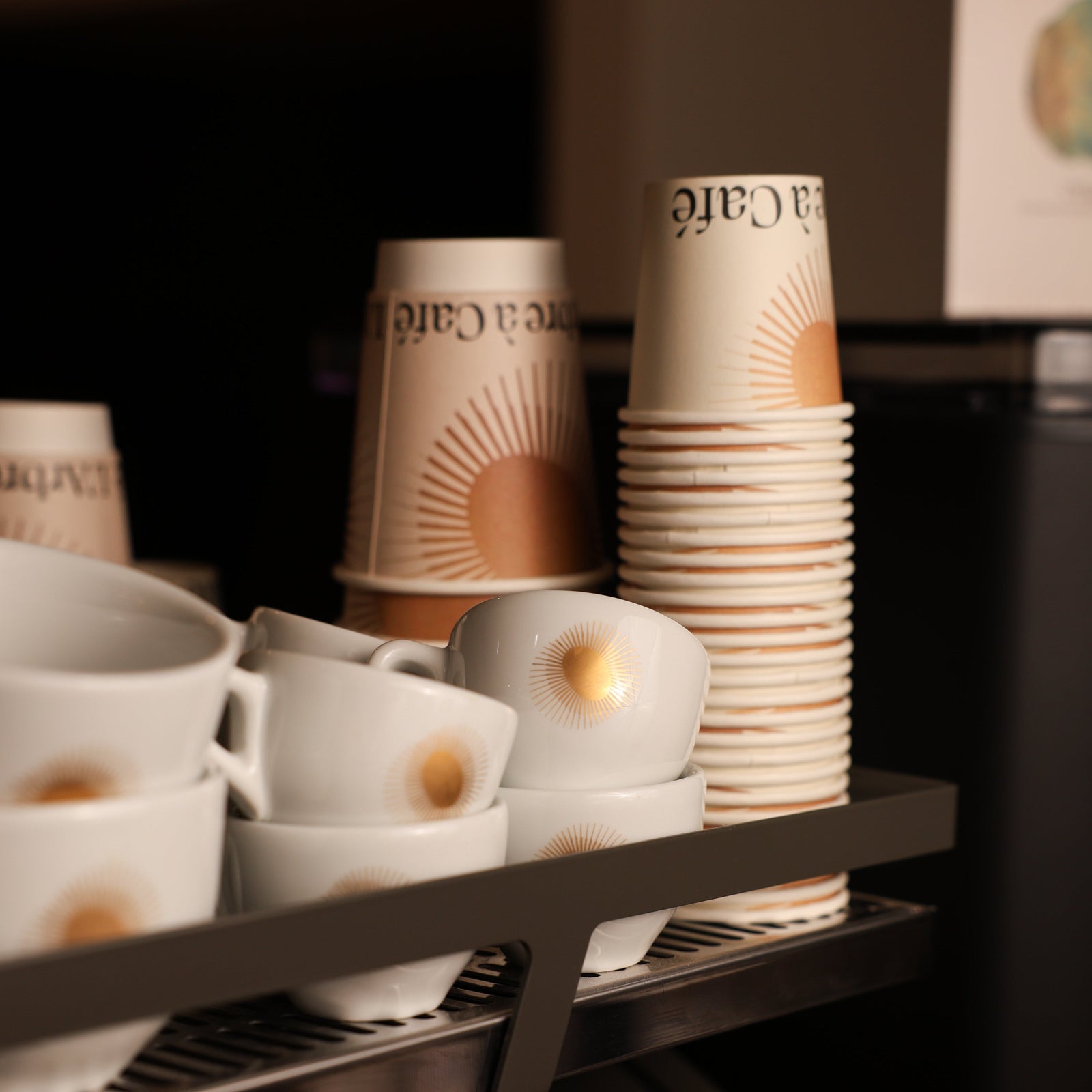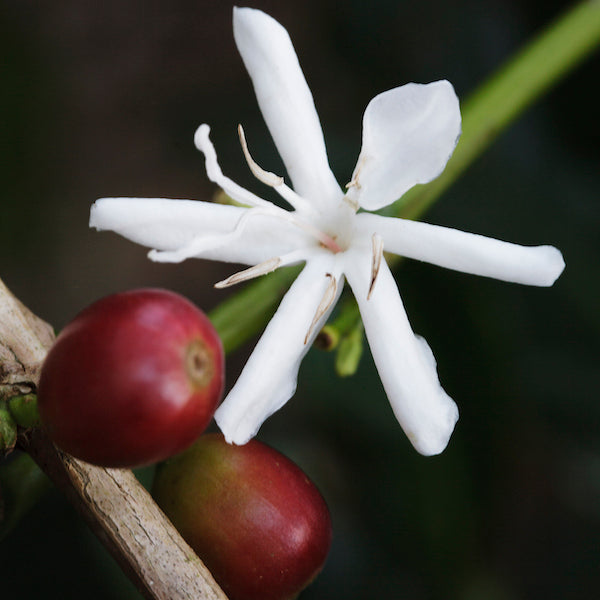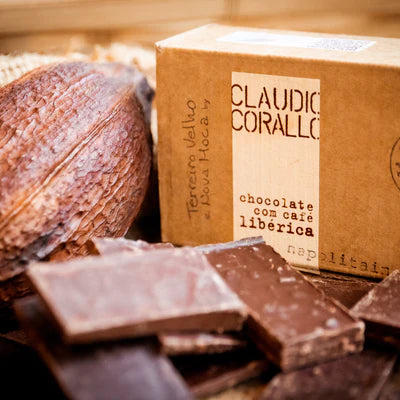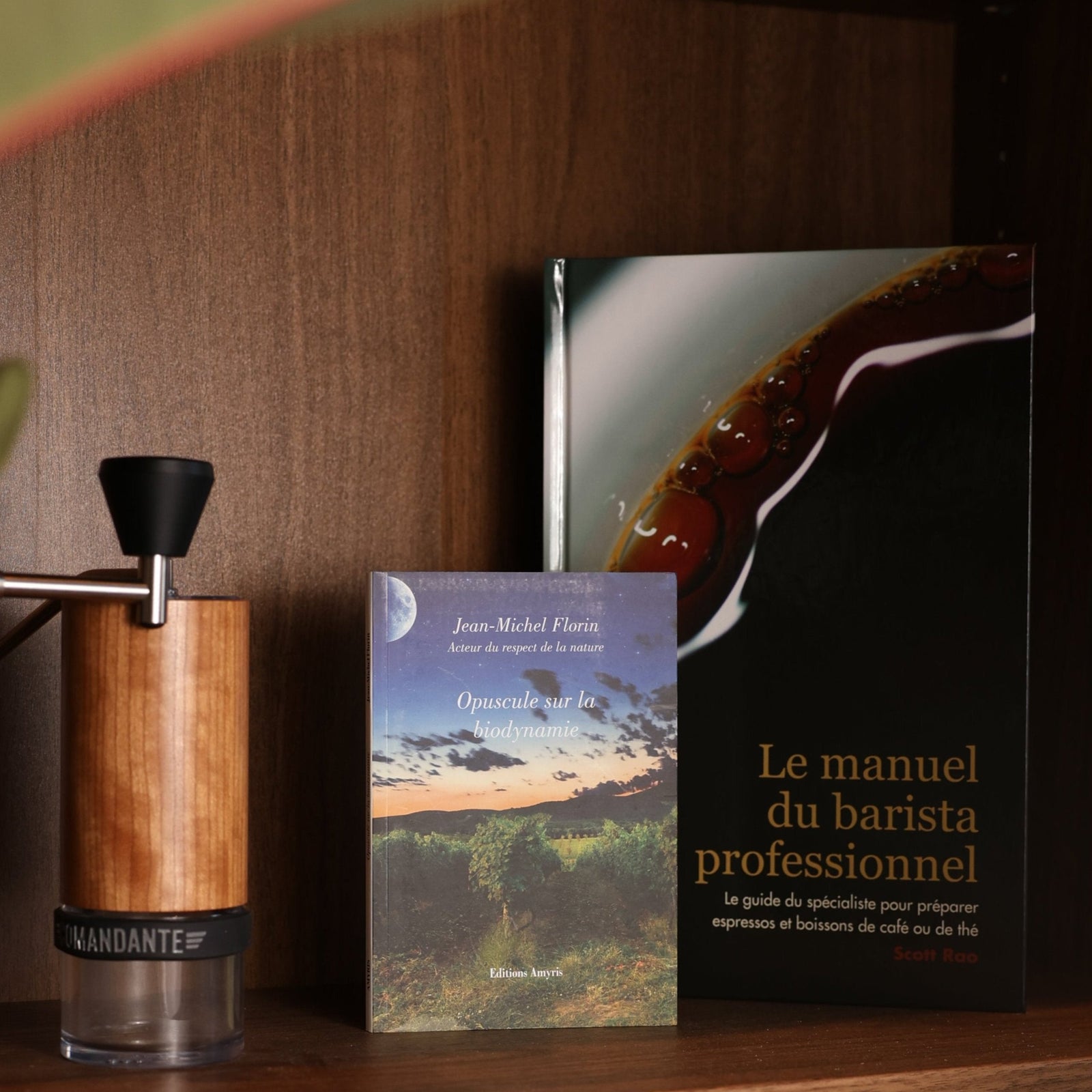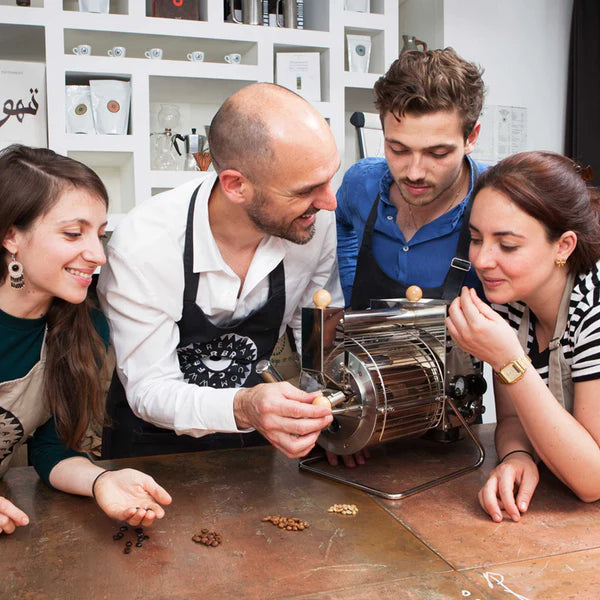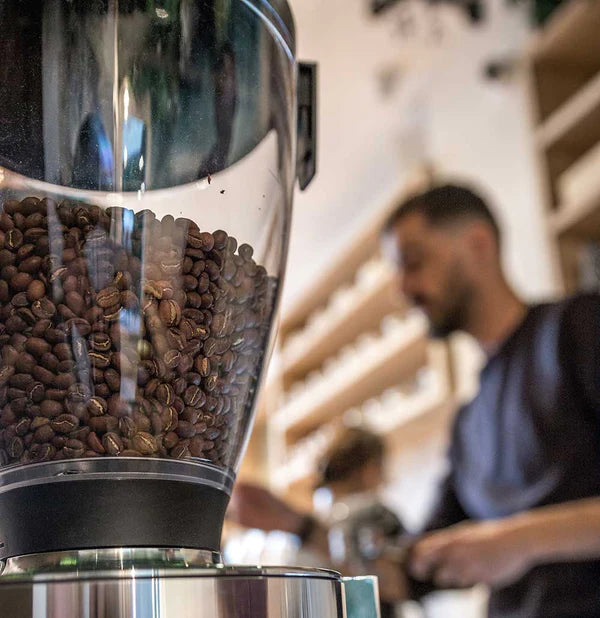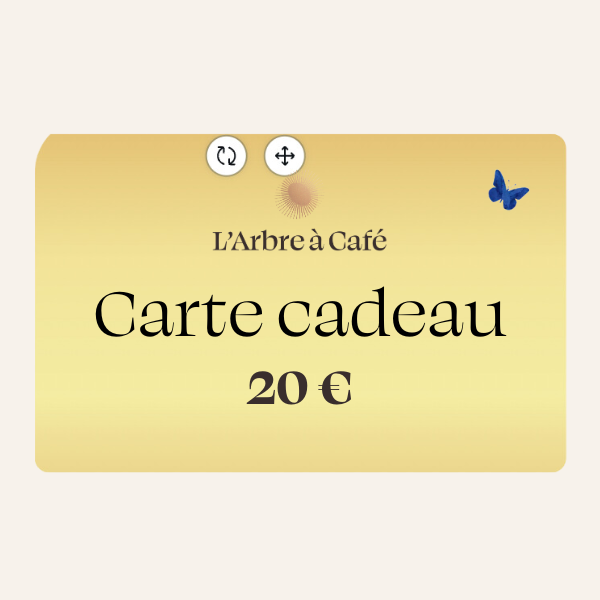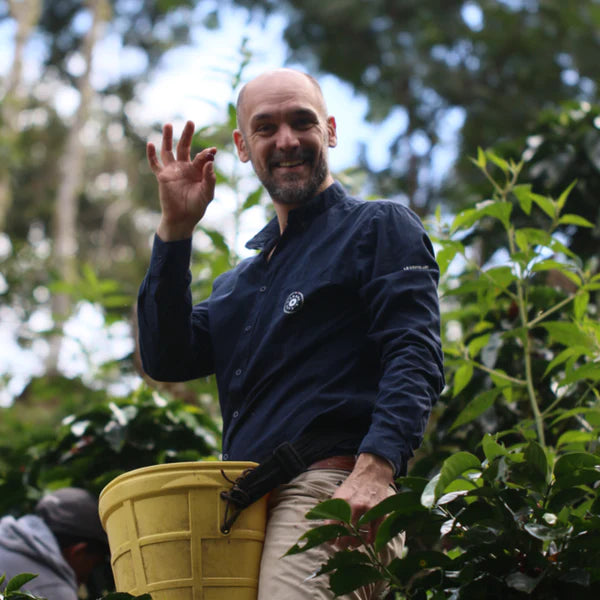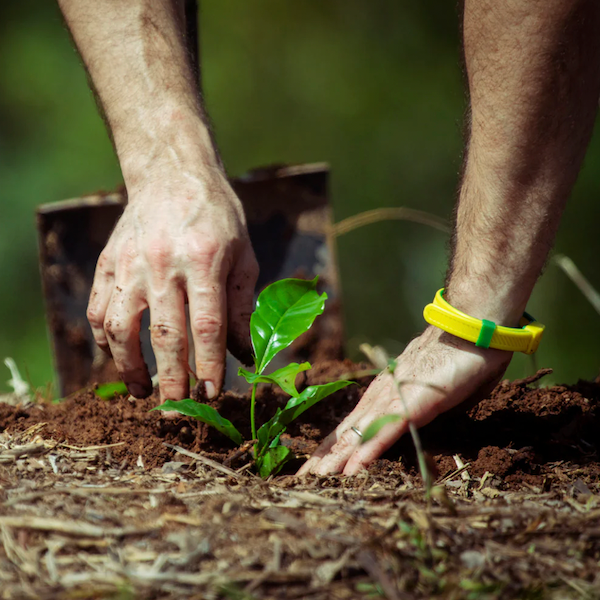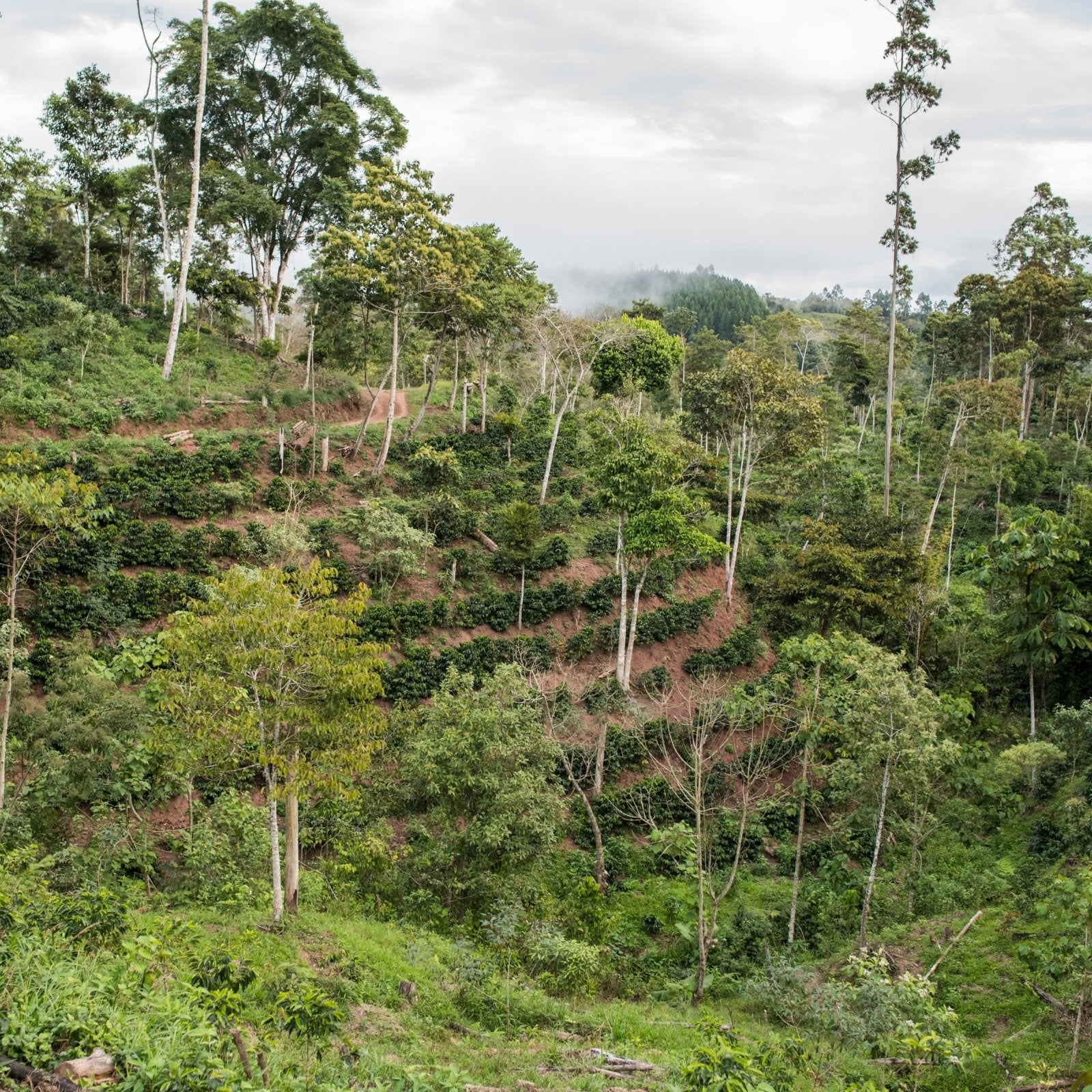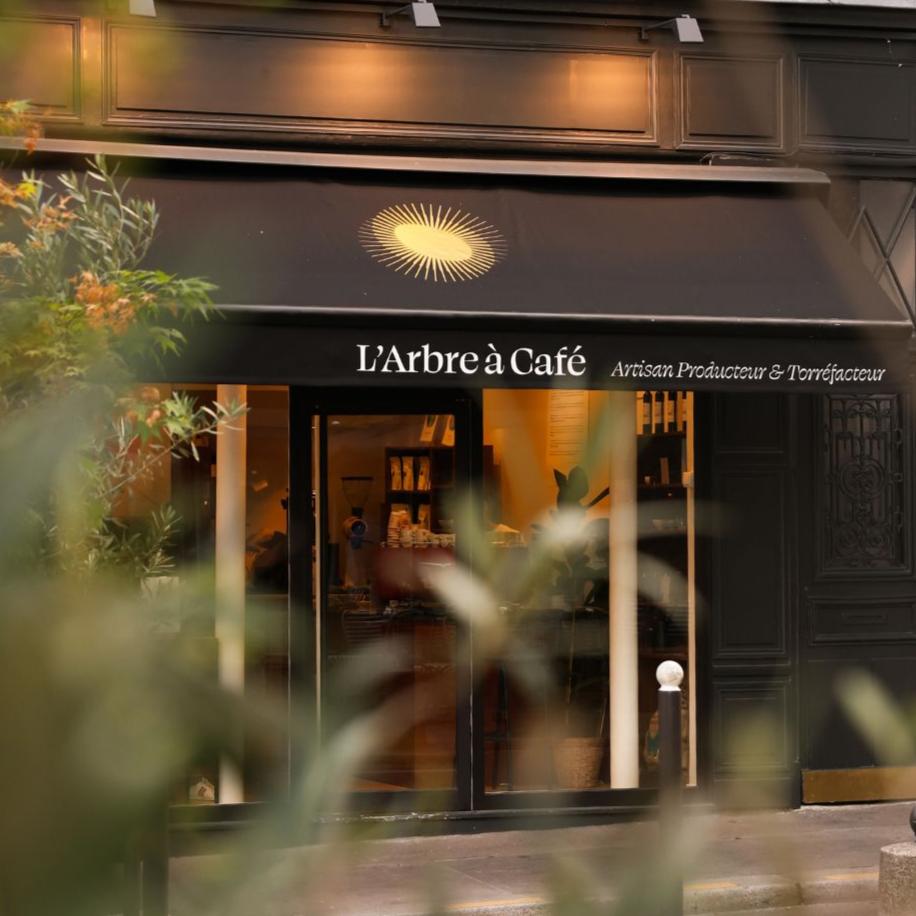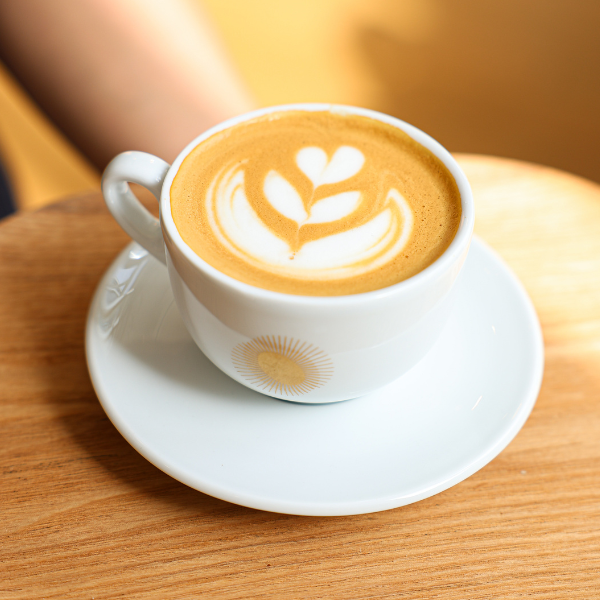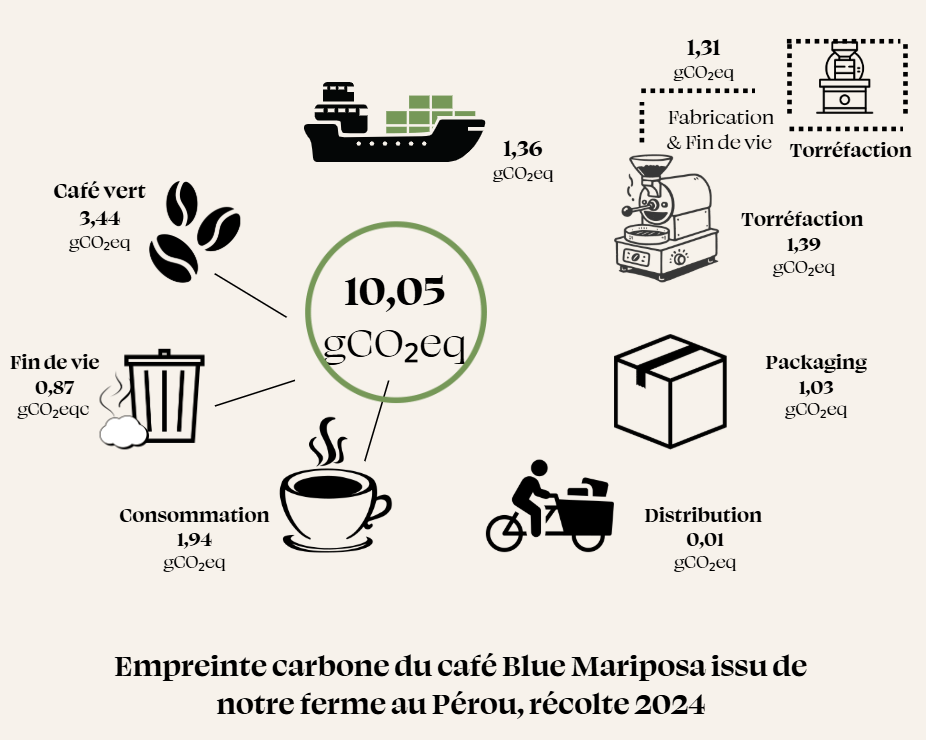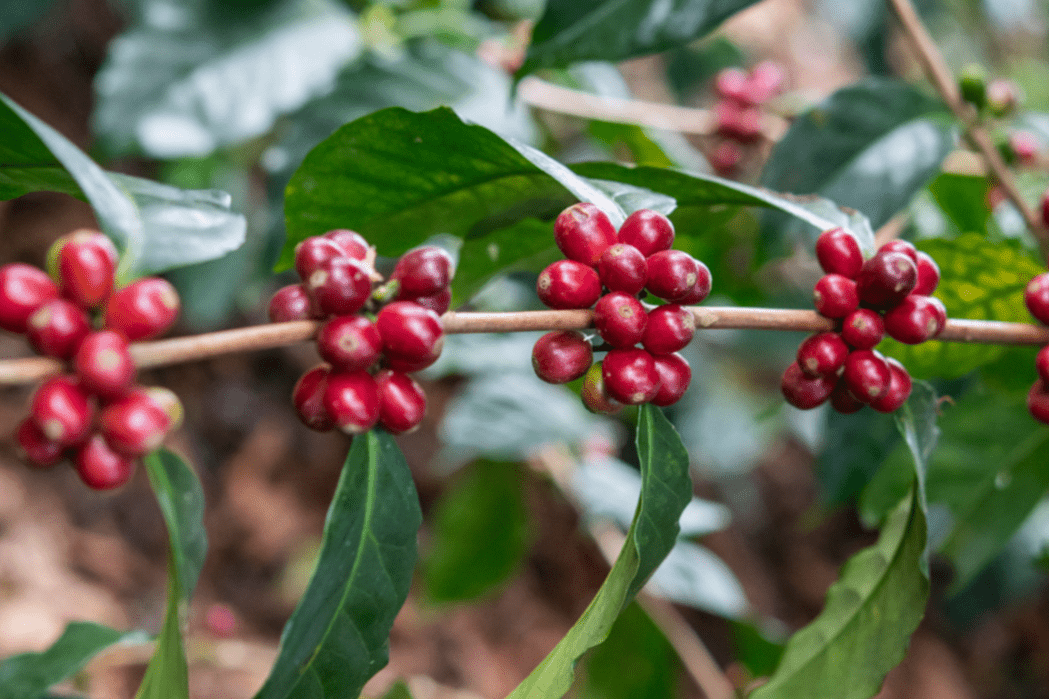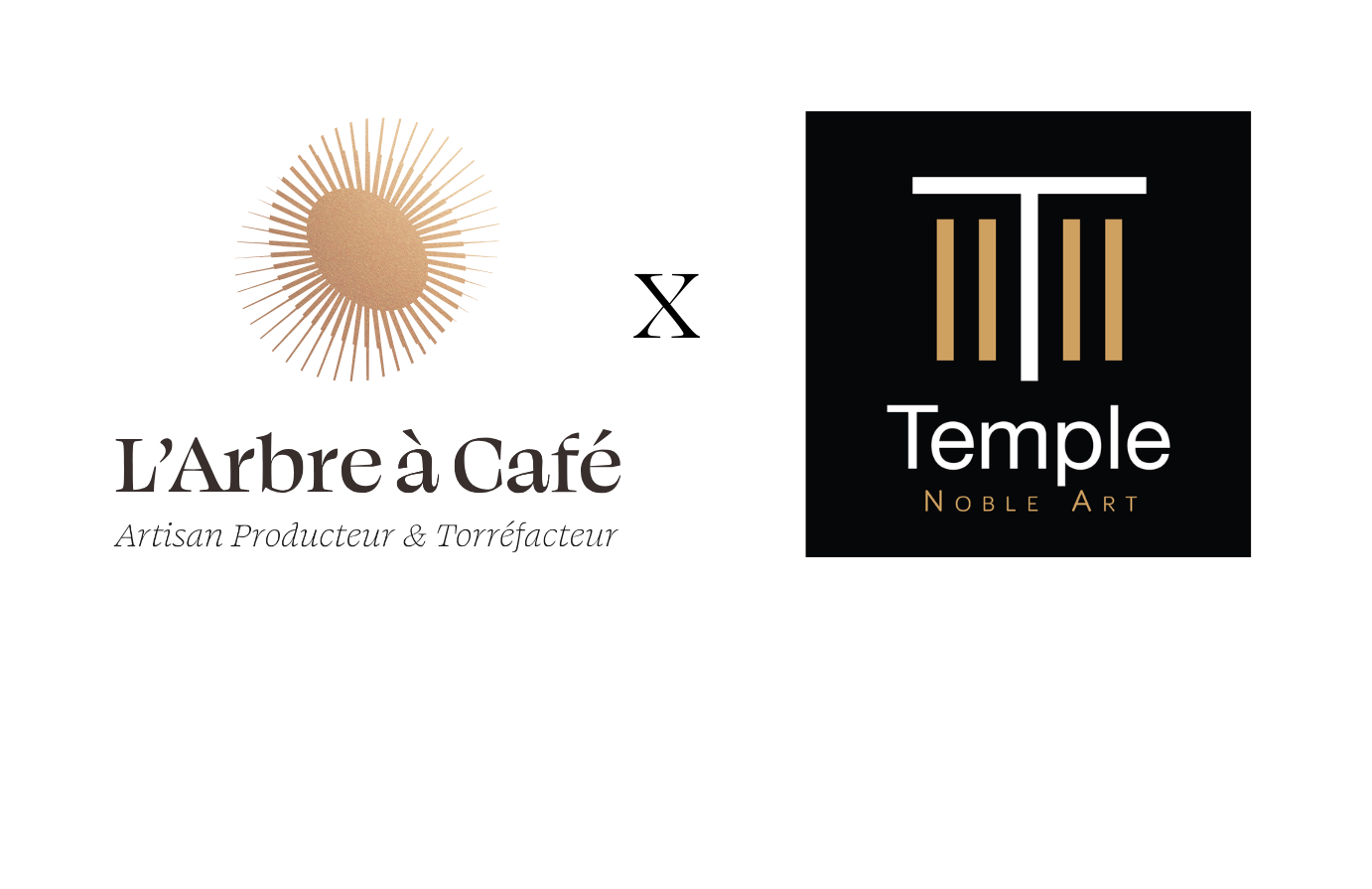A farm, what farm?
In 2018, L'Arbre à Café became a coffee producer like its amazing suppliers, family farmers, with whom we have been working for over 12 years now.
What a thrill it is to share the fruits of this adventure with you. You can now order or taste them in our boutiques.
The farm of L'Arbre à Café is Finca Mariposa. Mariposa (butterfly in Spanish) in homage to the swarms of butterflies that greeted us on our first visit.
It covers 35 hectares, of which 25 are dedicated to coffee, 5 are preserved as an integral wilderness reserve, and 5 are dedicated to infrastructures such as the beneficio or the composts, to lodgings and soon to an eco-lodge, but also to access roads and waterfalls.
Discover Mariposa coffees now!
- Blue Mariposa
- Aurorina
- Isabelina
- Assortment of the three

Why did L'Arbre à Café become a producer?
After 10 years of scouring the world's plantations to source the best coffees for your enjoyment, and consulting on quality and biodynamics with ambitious and innovative farmers, we decided to embark on our adventure.
Theambition of L'Arbre à Café has always been to master the entire coffee value chain. In cocoa, some incredible chocolatiers have led the way, such as Akesson, Pralus or Claudio Corallo. In perfumery and luxury crafts, it is an ancestral and fundamental habit, considered asine qua none of high quality. Some call it traceability. For us, we call it integration and consistency, in short, meaning.
Another ambition, embodied by certifications such as B Corpis to nurture virtuous relationships, toact with impact in the world with all our stakeholders, i.e. with all the people and entities with whom we interact and work.
Moreover, the local anchoring of companies is considered one of the most powerful factors to improve the state of the world and have a strong societal impact.
So for a company Impact Native company like ours, being locally rooted and committed to a local community is a matter of course.
Finally, the desire to show that the agricultural and farming models we've been defending for so long really work is another reason for our commitment. Biodynamics, agroecology, complementary crops, mandala gardens, etc. are promoted and extolled by every farmer we work with. It was time to show, as we do on a pilot or model farm, that these production methods are virtuous because they are good for people, good for the earth and profitable for the company. We can only change models by example and success.

How did L'Arbre à Café choose his farm?
We started with a blank page and an analysis of the contemporary issues that weigh on the world's orchards, Peruvian society, and the coffee market.
The blank page we covered with the basics and othermust have for the success of such a project.
The first condition: the team
To embark on a long-term adventure 10,000 km away, you need a team. The adventure is done with people. Too many projects do not reach their conclusion because of the lack of an efficient, stable and united team. Our company is called Terres et Hommes on purpose. In Peru, we have partners of choice, who have become friends, the Marin family of Chakra do Dago. We have been working closely with them for more than 7 years now and have seen, with our transfers and advice, the progress they have made, their investment, their capacity to progress, to choose and the agricultural, social, human, educational and qualitative success that is now theirs and of which we are very proud. We have not hesitated to give up other places or projects because of the lack of a strong partnership, because this partnership seemed to us to be the most reliable and effective.
The second is the altitude.
Altitude in specialty coffee is an essential condition for quality, and it cannot be compensated for by any kind of development. It is essential because the great diurnal and nocturnal thermal amplitude that characterizes high altitude environments allows for a slower ripening cycle, and therefore a greater organoleptic complexity. The higher your plantation is, the slower your fruits ripen, the more complex and rich your coffee is. Altitude is also fundamental with respect to climate change and especially global warming. For every 100 meters of difference in altitude, the temperature drops by 0.8°c even in the tropics. It is therefore fundamental, for those who want to last and endure, to perch their plantation much higher than the current coffee growing areas. We observe, on a worldwide scale, a migration towards the top of the production areas. We wanted to be ahead of the curve.
Finca Mariposa is located at 1900 meters of altitude, that is to say at more than 500 meters of that of our friends, the Marin family, and is well, in the literal sense of the word, isolated at this altitude. Peru, in this respect, becomes an origin of choice and election because the altitudes are high there. Thus Graciano Cruz in particular has just invested there, for the same reasons, also.
The third is the quality of the soil.
This quality is understood in three different and complementary ways. Invested in regenerative, organic and biodynamic agriculture, we could not take over a piece of land contaminated by the chemical inputs of conventional agriculture. We therefore decided from the outset to opt for a piece of land that was free of all crops. This implied to start the plantationex nihilo,from scratchand thus to launch us in a long-term project. Patience is the mother of all virtues.
Moreover, the quality of the soil is the one that agronomists appreciate and look at, i.e. the composition of the soil. So we did dozens of soil tests, studied the plants that grew naturally in the soil - what we call bio-indicator plants - to verify the potential of our land. There are rarely, if ever, ideal soils. We have to mourn the loss. And the challenge imposed by reality is all the more stimulating. Thus, ours suffers from a slightly high acidity. We are raising it thanks to proven agroecological techniques.
Finally, in biodynamic agriculture, it is customary to study the soil under other aspects such as its energy, and by other means than biochemical analyses. We use two methods, sensitive crystallization on the one hand, and chromatography on the other. These analyses have confirmed that the coffee trees would be very happy in this location.
The fourth is accessibility.
It is good to have a farm, but if it takes a week to get there, if transporting equipment and cherries is impossible, then it becomes a daily hell. Some of our growers, especially in Panama and India, experience this remote situation and it complicates things a lot.
Finca Mariposa is thus connected by roads, of ground, certainly, which it is necessary to maintain also, and, is easily accessible since the city. The only drawback is that it is a day's journey from Lima. We are thus far from the situation of certain Colombian plantations located at 1 hour of the airport but much better than others...
Finally, biodiversity.
Biodiversity is created, but it is also conserved and, above all, protected. L'Arbre à Café is already very much involved in the protection of major biodiversity ecosystems. Indeed, the carbon compensation that we do aims at financing the protection of the Madre de Dios area in Peru, an extraordinary Amazonian ecosystem and therefore threatened by deforestation. L'Arbre à Café is also particularly invested, by its sourcing, its purchases and its partnerships in the regeneration of the soils and the biodiversity of the cultures by implementing cultures known as complementary and friendly to the coffee trees. We have therefore studied the animal and plant biodiversity, cultivated the species that seemed to us the most endangered and the most effective for the shade of our plantation and designed the shade with more than 12 different species. We are also planning with a French university to study biodiversity and its evolution over the years.
At L'Arbre à Café, we are also particularly sensitive to the worldwide movement of the Wild Reserves, that is to say of these spaces, often forested, bought by associations or private individuals, and destined exclusively to the non human life. By which means, all human activity is prohibited. It is thus a kind of peace reserve for the fauna, the flora and the vegetation. We were very eager to have such a zone. Thus, 5 hectares of virgin forest are totally protected and preserved in the heart of the plantation. Our friend Ratibor Hartmann, in Panama, also made the same choice.
We could of course add other important conditions such as the presence of water, to have the possibility of making retention basins in particular (the risks of fire and periods of drought tend to develop), or the absence of disease such as rust in the area.
You will have understood, the choice of a land is based on the pillars of L'Arbre à Café : the Earth and the people ;)
So we chose it with heart, science and people.
How to create the Coffee Tree Farm?
After the soil studies, the climate surveys, the assurance that the team would be there, it was time to start drawing and designing.
This phase of creation is the meeting of ideas and constraints, of ambitions incarnated in reality. It is exciting, difficult, trying and exciting.
As Eisenhower said: "To win the war, I had three types of advisors. The politicians who told me what to do, the military who told me what to do, and the logistics, what I could do. My choice was quickly made!"
We wanted a farm that met the following criteria:
- high quality coffee
- diversified varieties
- biodynamics
- agro-ecology with complementary crops
- permaculture by aiming for autonomy
- diversified agroforestry with native species
- an important animal life for their presence and the quality compost
- comfortable and locally designed housing
- a mandala garden
- an eco-lodge to welcome visitors : clients or woofer
- a wilderness reserve
- a flat surface to accommodate the beneficio
We therefore played with the roads, the slopes, the already wooded areas, the soil qualities to design our plantation, define the plots, locate the different functions and limit the non-agricultural area to a maximum.
Do we have it? After three years of work, we have already laid the foundations of the whole, and the realization program is well advanced, most of the boxes are checked!
After three years, where is the farm?
After three years - the purchase was made in December 2018 - including a year and a half with Covid, we are very happy and proud of the work accomplished. The team on site is indeed fantastic, dedicated, professional, innovative, autonomous and invested.
We decided to plant in stages in order to save our investments and above all to understand our ecosystem.Chi va piano va sano e lontano.
Thus, in the first year, 10 hectares were regenerated by planting theTres Hermanaswhich is a permaculture combination of corn, squash and peas. These same hectares were fed with ash, from the logging work, in order to temper the acidity of the soil. Finally, they each received 6 tons of biodynamic compost. This work is continued for several years on any new plot prepared.
Each year we plan to plant between 5 and 10 hectares, depending on the seeds we have sourced from the best plantations in the world.
The first year, the first 5 hectares, at the bottom of the plantation, were planted with the so-called Brazilian varieties, which we particularly appreciate for espresso. The Obata, the Arara, the Catigua and the Iapar.
Each coffee plantation campaign is associated with a plantation of shade trees, about a hundred per hectare, border plants (vetiver, lemon grass, small fruits, flowering trees...) and complementary crops: turmeric, corn, ginger etc. ....
Each planted plot is also associated with a compost area. This may seem like a detail, but when you have to produce 4 kg per year per plant, it becomes vital. An area for the production ofbiolesThis is also the basis of organic and biodynamic coffee growing.
After three years of planting, we are at 15 hectares planted. The covid made us shift the planning by one year, instead of three years, we will need four years to plant the whole 25 hectares.
In 2021, the first housing units will be built and the animal farm will be installed: guinea pigs, sheep, cows, chickens, etc.
In 2022, the ponds and the mandala garden should be completed.
Then comes the eco-lodge and the beneficio.
Which varieties to choose?
The choice of varieties is crucial and definitely guides the type of planting and business model you have.
There are many varieties called cultivars, some are more resistant to rust than others, others are more productive, others take longer to grow.
We have chosen to balance and make the most of the differences in altitude. 200 meters separate the highest and lowest points of the farm. We also wanted to start in safety, the time to know our ecosystem better. That's why we first planted the most tolerant and adaptable varieties to biodynamic agriculture and to natural conditions.
We then cross-referenced the varieties that we particularly like at L'Arbre à Café with those that have the greatest quality potential, notably by looking at the results of the Cup of Excellence and the World Championships since their origins. Finally, we looked at how to get them and from whom. We always prefer to have seeds from friendly plantations with a worldwide reputation than from unknowns.
Thus, the second generation of plantation, which is now between one and two years old, was made of Java, Bourbon Purpura, Geisha and Parainema.
The third one, in progress, completes the Java, which blossoms extraordinarily well in Mariposa, the Geisha and some mystery varieties, unpublished and coming from virgin forests of the origins of coffee....
The fourth year of planting will be devoted to completing the new plots with the varieties that give the best results in Mariposa, and with rare varieties.
When will the first harvest take place?
The first harvest took place in the summer of 2022 and the first commercialization of the grains is scheduled for April 2023!
From this date on, coffees from new plots will be marketed every year! The plantation should be in full production by 2025.
Will the cafes be certified?
Yes, of course, Mariposa coffees are L'Arbre à Café coffees. Finca Mariposa is already in organic conversion and the first harvest will be officially AB. From the second, in 2024, it will be Demeter. And undoubtedly, in 2023, the entire Mariposa plantation will join the B Corp community, since we will have to integrate it into the renewal of the B Corp certification of L'Arbre à Café.
What kind of coffee do we want to create?
The coffees of L'Arbre à Café are gourmet, rich in flavors, long in the mouth, and above all sensitive, sensory and full of meaning.
You can now enjoy our coffees!
- Blue Mariposa
- Aurorina
- Isabelina
- Assortment of three
Enjoy them! They're one-of-a-kind!



